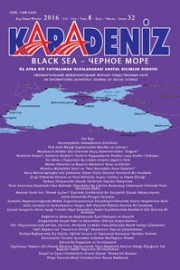Sosyal ve Siyasi Felaketlerin Ürünü Olarak “Hilekarlık Romanı”
Picaresque as a Historical Product of Social and Political Cataclysmus
Author(s): Maia MelanashviliSubject(s): Customs / Folklore, Studies of Literature, 16th Century, 17th Century, Theory of Literature
Published by: Kültür Ajans Tanıtım ve Organizasyon
Keywords: Picaresque genre; picaresque story; narrative picaresque; novel picaresque;
Summary/Abstract: The literary genre of picaresque was founded in the Middle Ages in Spain in XVI – XVII centuries. The term genero picaresco comes from the Spanish el picaro (naughty, cheater and swindler), and in different literature, it functions together with national substitutes: in Georgian literature – (Taghlituri romani), in Russian - плутовской роман, in Ukrainian - шахрайській or крутійській роман, in German – shelmen roman, in English - romance of roguery etc. The definition of picaresque comprises not only the scenic form of the novel; there is a story-picaresque or a novel-picaresque that found their place in the tradition of the world literature. According to the tradition, a picaresque tale or a picaresque romance tells us about the hero – picaro`s detailed biography (from his birth to his “enthronement”), that`s why the rich life, historical and geographical materials are given in these forms of the genre, and accordingly, it is considerably big. As for the picaresque novel and picaresque story, they represent the “fragments” from the extensive biographical story, one or several episodes, and as a rule, contain the description of the adventure of the picaresque hero. The genre, whose name is a “picaresque novel” was founded in the Middle Ages in Spain in XVI-XVII centuries, though very soon, it was successfully spread in the West Europe, went beyond the ocean borders and reached Latin America. It should be taken into consideration that the classic poetics was still operating in the epoch of the picaresque novel, the literary law, which did not oblige the author of the literary works to depict the reality, to create true pictures of the surrounding reality. The picaresque, as a literary law of the “national Spanish genre” is well-studied in the scientific circles of the west, but we cannot say the same about the Georgian literary studies. The questions of the genesis of the genre (folk – mythological and literary), innovative literary character of picaro and novel conflict (“little man” versus the society), historical and literary values of the picaresque novel, transformation questions of the genre model for the last two centuries remain still problematic, and also the question of the study of genre traditions in the works of some writers.
Journal: Karadeniz Uluslararası Bilimsel Dergi
- Issue Year: 2016
- Issue No: 32
- Page Range: 337-343
- Page Count: 7
- Language: English

